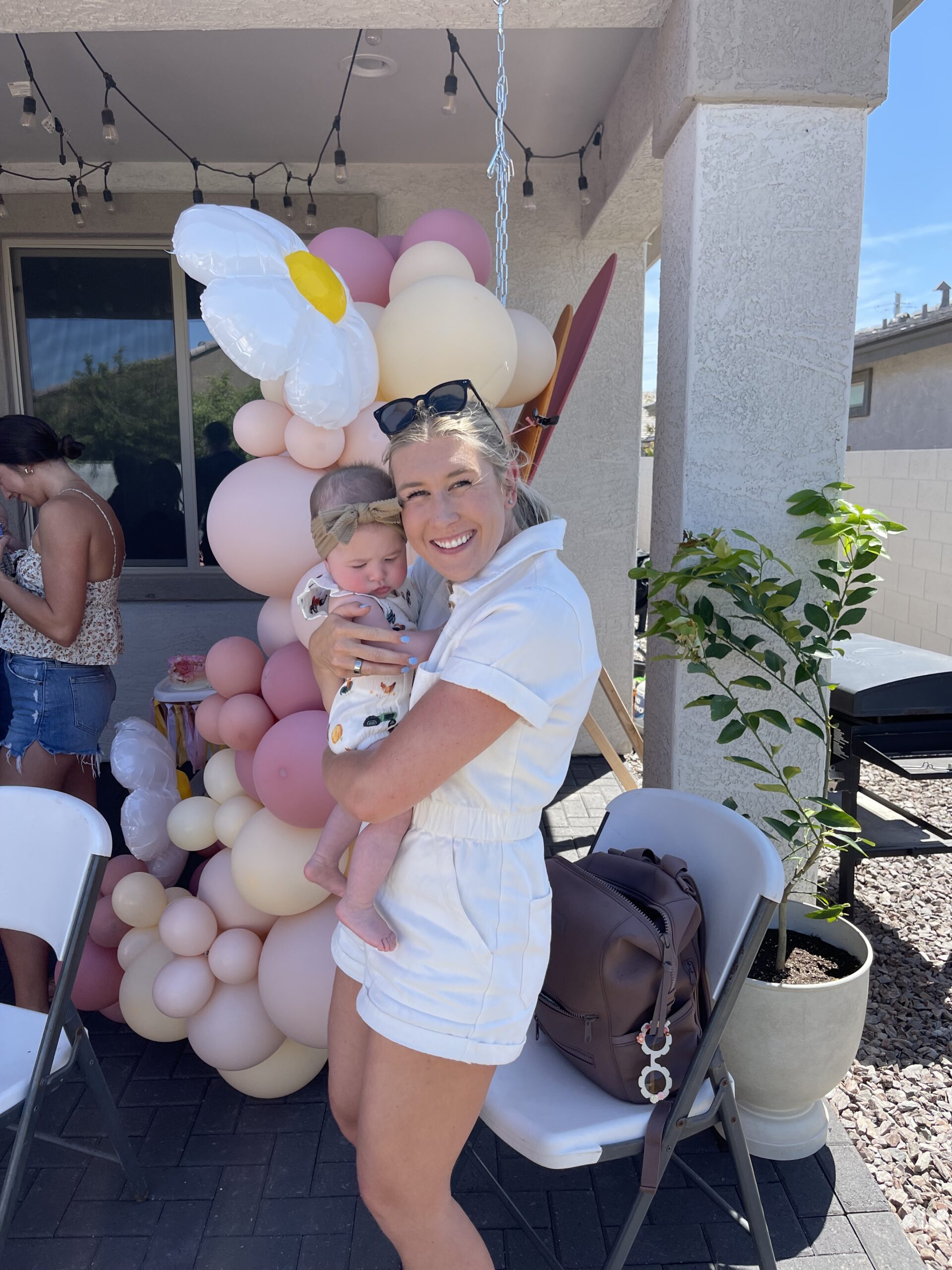9 Sneaky Habits Preventing You From Binge Eating Recovery
Written By:
Category:
Ryann Nicole
Are you feeling stuck in binge eating recovery? Frustrated that you’re not healed yet? Chances are, there are still some behaviors you may be engaging in that inhibit your healing. Before you beat yourself up and claim to be a lost cause (hint: you’re not!), check out these nine not-so-obvious habits that may sabotage your recovery from binge eating.
#1. Habit Preventing You From Binge Eating Recovery: Continuing to weigh yourself.
Every time you get on the scale, you reinforce the belief that numbers matter. Knowing your weight doesn’t change your body size or make food easier to manage. As long as you continue to weigh yourself, you are not allowing yourself to trust your body, and the binges will continue.
#2. Only focusing on the food, ignoring addressing the root cause of your binge eating.
Binge eating is a reaction to various unmet needs. If you aren’t addressing those needs outside of food in recovery, changing how you eat will only get you so far, and the binges will continue.
#3. Habit Preventing You From Binge Eating Recovery: Continuing to engage with the eating disorder voice.
You might not have control over that automatic eating disorder voice, but you do have control over whether or not you engage with it. As long as you engage with that voice (even in recovery), it will have power over you, and the binges will continue.
#4. Finding excuses to avoid situations that involve eating or body image exposure.
I get it; these situations are challenging. I used to think, “but if I never do it, then I won’t be triggered.” While that may be true at that moment, you cannot avoid these situations forever. Binge eating recovery is learning how to be okay, regardless of what the food or your body looks like.
#5. Habit Preventing You From Binge Eating Recovery: Judging yourself and/or your food choices.
As long as you continue to judge yourself or your food choices (e.g., “I am so bad for eating that,” “I shouldn’t be hungry right now,” “I have no control”), you will fall into the binge eating cycle. Judging yourself and your food choices is one of the critical components of mental restriction, which exacerbates binge eating.
#6. Not buying binge trigger foods.
As long as you continue to tell yourself, “I can’t have that food without binging,” you are reinforcing the belief that these foods have power over you, and the binges will continue. Rather than avoid binge-trigger foods, slowly add them as you feel ready.
#7. Rejecting your body.
Has hating your body ever helped? Has hating your body ever done anything good for you? As long as you reject your body, you won’t be able to have a good relationship with it. To achieve binge eating recovery, you and your body must be on the same team, starting with accepting (rather than rejecting) the body you have now.
#8. Habit Preventing You From Binge Eating Recovery: Not paying attention to your hunger and fullness.
Ending the binges starts with reconnecting (and listening!) to your hunger and fullness cues. You are not showing trust in your body by engaging in behaviors such as ignoring your hunger or treating fullness as “wrong” or “bad.” If you ignore your body’s cues, your urge to binge will remain.
#9. Having the F-it Mentality When Things Aren’t Perfect.
The F-it mentality stems from continuing to engage in all-or-nothing thinking, and full recovery cannot happen without changing this unhelpful mindset. When something in your day doesn’t go right, you cannot say “f- it” and let your whole day be ruined by engaging in your typical binge eating coping mechanism. Instead, you must learn to separate that event from your eating.
To Summarize:
This list provides just SOME examples of what may be keeping you stuck. I hope this shows you that recovery is about so much more than just eating food “normally” and that there is no quick fix. If you are stumped about why your binge eating recovery is stalled, go through these behaviors and see if you can identify an area you need to work on. And remember to be kind to yourself! This checklist is not to shame or judge you but to shine a spotlight on areas of improvement so you can continue your healing and ultimately achieve food freedom.
More Blogs On Binge Eating:
- Just Binged? 5 Things To Do After A Binge To Heal
- 5 Things I Had To Do To Stop Binge Eating
- The Difference Between Binge Eating, Emotional Eating, and Overeating
Must Read Books To Improve Your Relationship With Food
Just so you know, I do review everything I recommend. When you buy through links on this page, we may earn a commission.
Intuitive Eating by Elise Resch and Evelyn Tribole
When it was first published, Intuitive Eating was revolutionary in its anti-dieting approach. The authors, both prominent health professionals in the field of nutrition and eating disorders, urge readers to embrace the goal of developing body positivity and reconnecting with one’s internal wisdom about eating―to unlearn everything they were taught about calorie-counting and other aspects of diet culture and to learn about the harm of weight stigma.
Health At Every Size by Lindo Bacon
Fat isn’t the problem. Dieting is the problem. A society that rejects anyone whose body shape or size doesn’t match an impossible ideal is the problem. A medical establishment that equates “thin” with “healthy” is the problem. The solution? Health at Every Size. Tune in to your body’s expert guidance. Find the joy in movement. Eat what you want, when you want, choosing pleasurable foods that help you to feel good. You too can feel great in your body right now—and Health at Every Size will show you how.
Anti-Diet by Christy Harrison
In Anti-Diet, Christy Harrison takes on diet culture and the multi-billion-dollar industries that profit from it, exposing all the ways it robs people of their time, money, health, and happiness. It will turn what you think you know about health and wellness upside down, as Harrison explores the history of diet culture, how it’s infiltrated the health and wellness world, how to recognize it in all its sneaky forms, and how letting go of efforts to lose weight or eat “perfectly” actually helps to improve people’s health—no matter their size. Drawing on scientific research, personal experience, and stories from patients and colleagues, Anti-Diet provides a radical alternative to diet culture, and helps readers reclaim their bodies, minds, and lives so they can focus on the things that truly matter.
Just Eat It by Laura Thomas
With a perfect blend of scientific expertise and relatable anecdotes, the author dismantles societal myths around food and body image. Through practical advice, self-reflection exercises, and a touch of humor, Thomas equips readers with the tools to break free from the cycle of diet culture, promoting self-love and nourishment. This book is an essential companion for anyone seeking to redefine their approach to food, fostering a positive and sustainable lifestyle.
Ryann Nicole
Licensed Therapist, Certified Nutritionist, and Virtual Wellness Coach
Ryann is a licensed therapist and virtual wellness coach who has assisted individuals worldwide in establishing a healthier relationship with food and their bodies.
Are You Ready to Heal Your Relationship With Food?
I understand—it can be overwhelming to figure out where to begin. Let's simplify things and have you start right here:
Why Am I Overeating?
First Steps To Stop Binge Eating
The Food Freedom Lab Podcast
FREE QUIZ
FREE GUIDE
Podcast
the food freedom lab podcast




